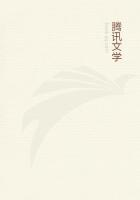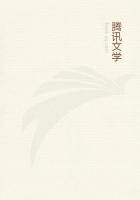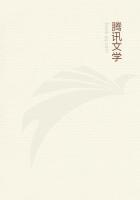In man, then, the head is destitute of flesh; this being the necessary consequence of what has already been stated concerning the brain. There are, indeed, some who hold that the life of man-would be longer than it is, were his head more abundantly furnished with flesh; and they account for the absence of this substance by saying that it is intended to add to the perfection of sensation. For the brain they assert to be the organ of sensation; and sensation, they say, cannot penetrate to parts that are too thickly covered with flesh. But neither part of this statement is true. On the contrary, were the region of the brain thickly covered with flesh, the very purpose for which animals are provided with a brain would be directly contravened. For the brain would itself be heated to excess and so unable to cool any other part; and, as to the other half of their statement, the brain cannot be the cause of any of the sensations, seeing that it is itself as utterly without feeling as any one of the excretions. These writers see that certain of the senses are located in the head, and are unable to discern the reason for this; they see also that the brain is the most peculiar of all the animal organs; and out of these facts they form an argument, by which they link sensation and brain together. It has, however, already been clearly set forth in the treatise on Sensation, that it is the region of the heart that constitutes the sensory centre. There also it was stated that two of the senses, namely touch and taste, are manifestly in immediate connexion with the heart; and that as regards the other three, namely hearing, sight, and the centrally placed sense of smell, it is the character of their sense-organs which causes them to be lodged as a rule in the head. Vision is so placed in all animals. But such is not invariably the case with hearing or with smell. For fishes and the like hear and smell, and yet have no visible organs for these senses in the head; a fact which demonstrates the accuracy of the opinion here maintained. Now that vision, whenever it exists, should be in the neighbourhood of the brain is but what one would rationally expect. For the brain is fluid and cold, and vision is of the nature of water, water being of all transparent substances the one most easily confined. Moreover it cannot but necessarily be that the more precise senses will have their precision rendered still greater if ministered to by parts that have the purest blood.
For the motion of the heat of blood destroys sensory activity. For these reasons the organs of the precise senses are lodged in the head.
It is not only the fore part of the head that is destitute of flesh, but the hind part also. For, in all animals that have a head, it is this head which more than any other part requires to be held up.
But, were the head heavily laden with flesh, this would be impossible; for nothing so burdened can be held upright. This is an additional proof that the absence of flesh from the head has no reference to brain sensation. For there is no brain in the hinder part of the head, and yet this is as much without flesh as is the front.
In some animals hearing as well as vision is lodged in the region of the head. Nor is this without a rational explanation. For what is called the empty space is full of air, and the organ of hearing is, as we say, of the nature of air. Now there are channels which lead from the eyes to the blood-vessels that surround the brain; and similarly there is a channel which leads back again from each ear and connects it with the hinder part of the head. But no part that is without blood is endowed with sensation, as neither is the blood itself, but only some one of the parts that are formed of blood.
The brain in all animals that have one is placed in the front part of the head; because the direction in which sensation acts is in front; and because the heart, from which sensation proceeds, is in the front part of the body; and lastly because the instruments of sensation are the blood-containing parts, and the cavity in the posterior part of the skull is destitute of blood-vessels.
As to the position of the sense-organs, they have been arranged by nature in the following well-ordered manner. The organs of hearing are so placed as to divide the circumference of the head into two equal halves; for they have to hear not only sounds which are directly in line with themselves, but sounds from all quarters. The organs of vision are placed in front, because sight is exercised only in a straight line, and moving as we do in a forward direction it is necessary that we should see before us, in the direction of our motion. Lastly, the organs of smell are placed with good reason between the eyes. For as the body consists of two parts, a right half and a left, so also each organ of sense is double. In the case of touch this is not apparent, the reason being that the primary organ of this sense is not the flesh or analogous part, but lies internally. In the case of taste, which is merely a modification of touch and which is placed in the tongue, the fact is more apparent than in the case of touch, but still not so manifest as in the case of the other senses.
However, even in taste it is evident enough; for in some animals the tongue is plainly forked. The double character of the sensations is, however, more conspicuous in the other organs of sense. For there are two ears and two eyes, and the nostrils, though joined together, are also two. Were these latter otherwise disposed, and separated from each other as are the ears, neither they nor the nose in which they are placed would be able to perform their office. For in such animals as have nostrils olfaction is effected by means of inspiration, and the organ of inspiration is placed in front and in the middle line. This is the reason why nature has brought the two nostrils together and placed them as the central of the three sense-organs, setting them side by side on a level with each other, to avail themselves of the inspiratory motion. In other animals than man the arrangement of these sense-organs is also such as is adapted in each case to the special requirements.

